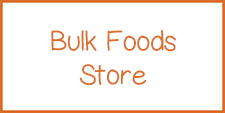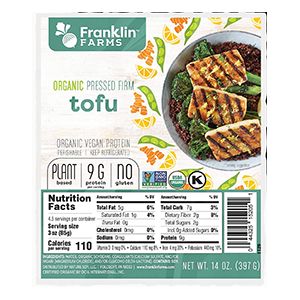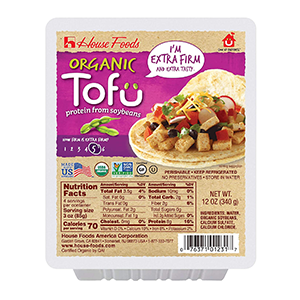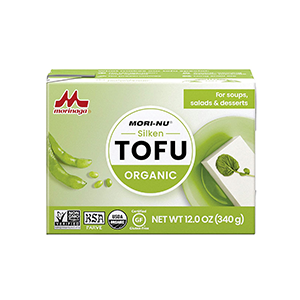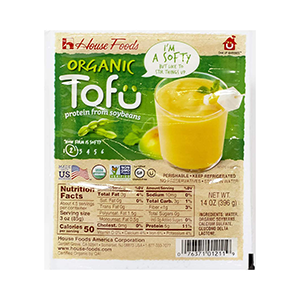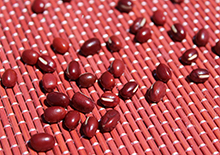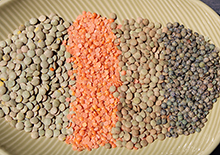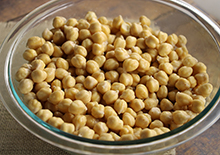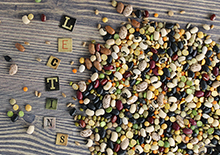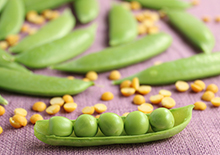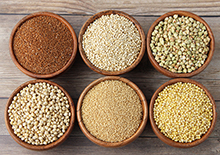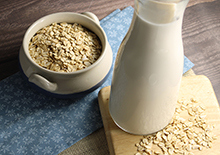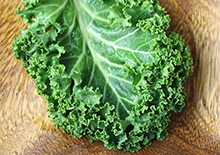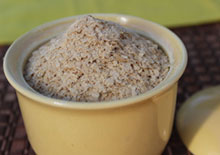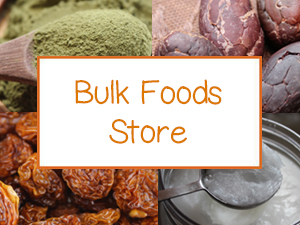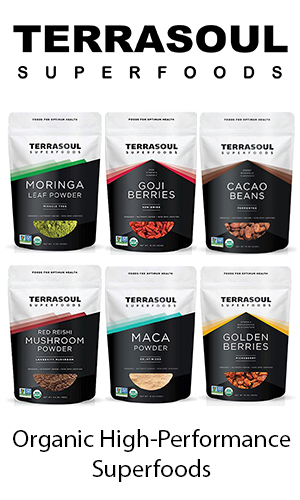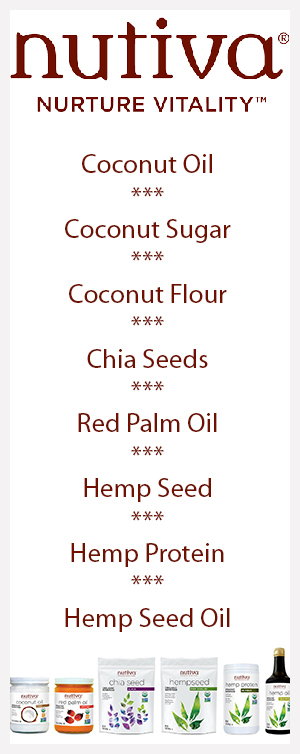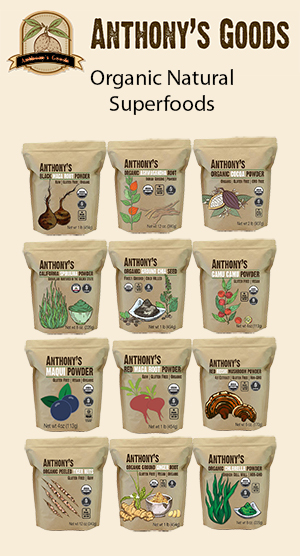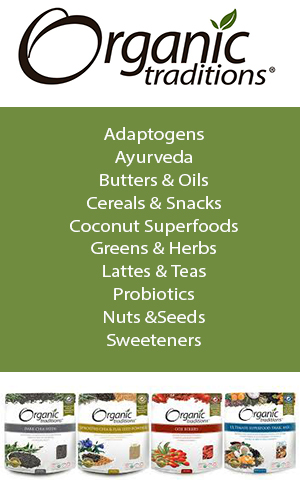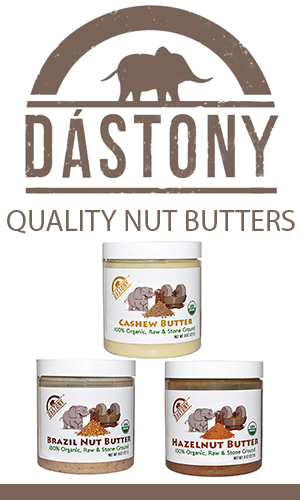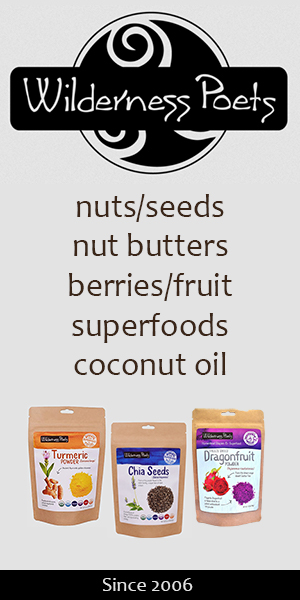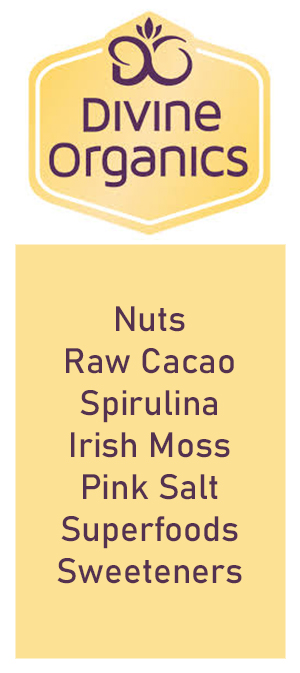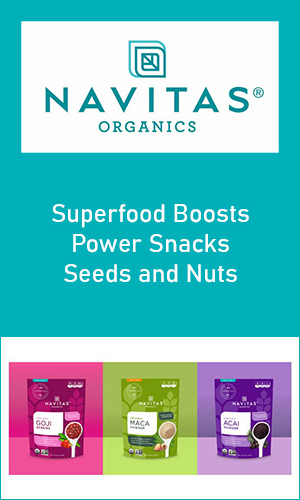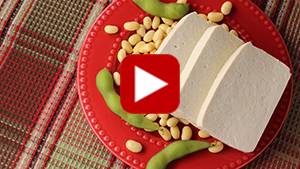- Home
- Plant-Based Cooking
- What is Tofu?
What is Tofu? Top 3 Common Concerns About Soy
What is Tofu? | #1 Male Feminization? | Conclusion About Phytoestrogens | #2 Tofu High in Calcium? | Conclusion About Gypsum | #3 Tofu and the Thyroid? | Our Conclusion About Goitrogens | Precautions | Shop
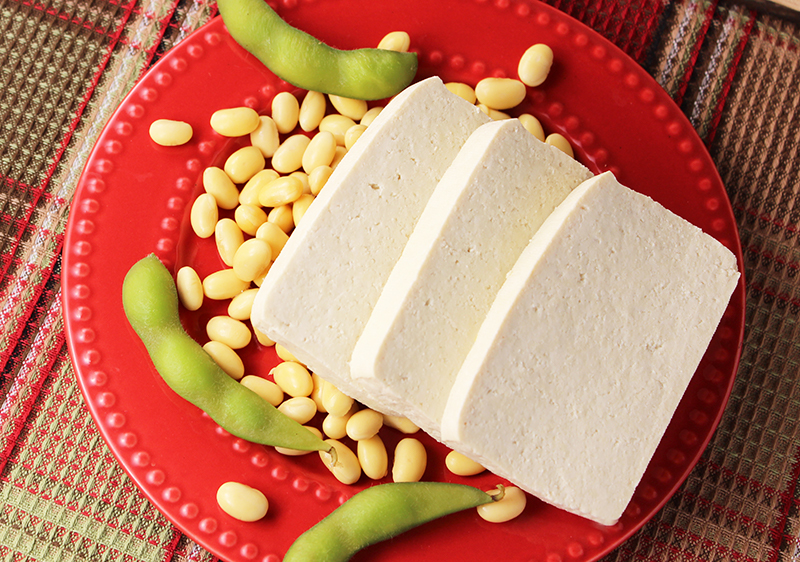
What is tofu? Tofu is coagulated soymilk that is pressed into blocks, producing a firm yet soft sliceable texture that takes on the rectangular shape of the mold.
Tofu is often called "bean curd" because it's made by a curdling method similar to cheese-making which involves separating the curds from the whey. However, it is not fermented, ripened or aged.
Initially, the soybeans are soaked, then blended with water until smooth. The "milk" or liquid is then filtered out, boiled, then coagulated or curdled and pressed with a weight into a cloth-lined tofu box to drain out excess liquid. The process usually takes about 30 minutes or longer depending on desired firmness.
It is sold commercially in a variety of textures such as soft/silken tofu, medium tofu, firm tofu, extra firm and super firm.
Tofu-making first began in China over 2,000 years ago, its technique and production becoming especially popular during the Han dynasty. It still today a popular food throughout Southeast Asia.
Here we will cover the top 3 most frequently asked questions about tofu and soy products in general and their debated health concerns.
#1 Common Question: Does Soy Cause Male Feminization?
In the last decade, there has been a concern, especially in the Western world, about the potential negative effects that too many soy-based foods can have on heterosexual males who consume them.
This is because soy products, especially soybean concentrated tofu, are very high in phytoestrogens often called soy isoflavones.
These soybean isoflavones, primarily genistein, daidzein and glycitein, have a structural similarity to estradiol and can mimic estrogen (the female hormone) in the body.
The subsequent conclusion drawn from this is that, since soybeans are one of the highest plant-based estrogens in the human diet, men or boys consuming them on a daily basis will develop feminine characteristics like breast tissue or "gynecomastia" (*) as well as experience impaired male hormone levels which are claimed to affect fertility.
There is currently, from our investigation, conflicting conclusions regarding this issue. According to data from earlier research, lower sperm-cell concentration was observed after a 3-month period of ample soy-based food intake.
In addition, some analysis on the phytoestrogens from soy indicates there may be a subtle feminizing effect, especially on young males and children.
However, in another 2021 review of past clinical studies, it was concluded that even high amounts of soy intake do not affect hormone levels in males. But it is important to note that two members of this study have direct relationships with the Soy Nutrition Institute and companies that manufacture and/or sell soy products.
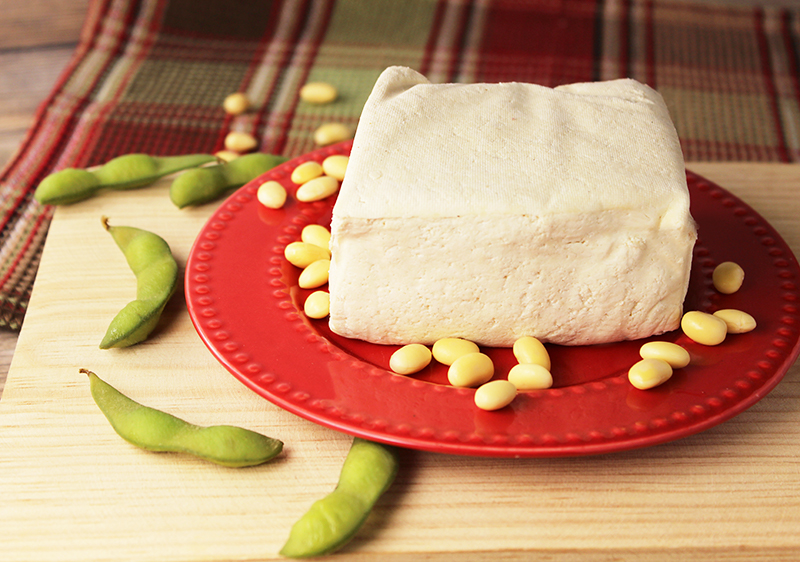
Our Conclusion About Tofu and Its Phytoestrogens
While more research is required, most evidence regarding adverse male side-effects points to consuming large amounts of soy as a significant part of one's diet or as a main protein source.
Other factors might also play a role, such as ethnicity. For example, do Asian male populations tolerate soy products better than Westerners? There is in fact some question in the scientific community about whether the health effects of soy might be reliant on if the individual can effectively convert the isoflavone daidzein upon digestion. (Source)
Our conclusion is that soy products such as organic non-GMO tofu can most likely be enjoyed a couple times a week by males without negative long-term consequences.
There are actually some proposed benefits and other advantages of consuming tofu once in a while as a protein alternative. Tofu made with slightly sprouted soybeans can also be better for increased nutritional uptake. Also, remember, the firmer the tofu the higher the protein content.
Soybeans and their estrogenic properties are also often recommended to menopausal women to compensate for estrogen deficiency.
For individuals who wish to pursue a soy-free diet, did you know that you can make homemade tofu from other legumes and even seeds like hemp seed?
#2 Common Question: Is Tofu High in Calcium?
Tofu is often on the list of top calcium-rich food sources. Why? Although soybeans do have some calcium content, most of the calcium in tofu comes from the often-utilized coagulant called gypsum or calcium sulfate. This makes it a CALCIUM-FORTIFIED food, rather than a naturally high source of this mineral.
Most commercial tofu, at least in the U.S. and Canada, is often made with a combination of calcium sulfate and magnesium chloride (often sold as nigari).
These substances help to coagulate or condense the protein and fat in heated soy milk when developing tofu's thick smooth texture. Gypsum and nigari have been used for centuries in China and Japan in traditional tofu processing.
One half cup of firm tofu made with these coagulants contains about 253 mg of calcium or 25% the Daily Value based on an adult 2,000 calorie diet.
Nigari or magnesium chloride is a salt-like compound usually obtained from clean seawater.
Gypsum or calcium sulfate, however, is a mined soft chalk-like mineral that is also used industrially as a hardening ingredient for building materials like plaster, stucco and drywall.
This is relevant to some health seekers because non-food derived calcium supplements like calcium carbonate, a type of mined limestone, have long been debated in research to have potential health consequences, calcification of the arteries being one of them. These types of supplements are thus frequently avoided by health-conscious consumers.
So, the question remains: Is tofu, and its gypsum or the calcium sulfate mineral content, safe if you tend to eat it on a regular basis?
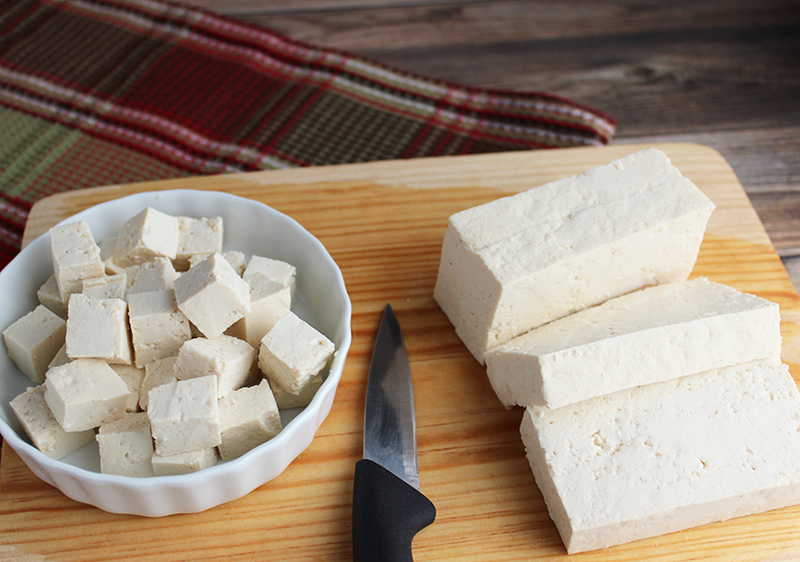
Our Conclusion About Gypsum or Calcium Sulfate
Currently, the FDA classifies gypsum or calcium sulfate under GRAS status or "generally recognized as safe." It is a widely used food additive in commercial bread, craft beers, canned goods, blue cheese and yeast products.
When analyzing tofu, by volume it contains a low ratio of coagulant. Calcium sulfate, along with magnesium chloride (nigari), both usually make up about 2%. This is indicated on some tofu product labels.
The main thing about non-food derived calcium is that it has a low absorbability rate which can lead to excess in your bloodstream where it can cause vascular issues.
Therefore, when consuming tofu for its calcium mineral, it might also be helpful to eat foods like natto which is a great source of vitamin K2 and MK-7, known to help increase calcium uptake into the bones.
From our perspective, moderate amounts of soy or tofu consumed occasionally are not likely going to be a problem. Generally, however, it is best to get calcium from other foods or food-based supplements.
While we advocate fermented soy products like tempeh over non-fermented varieties, we feel tofu can be a healthy part of most common diets.
Likewise, it is a good one to keep on the list of meat alternatives if you’re taking a break from animal foods or are following a vegan, vegetarian or plant-based diet.
#3 Common Question: Can Tofu Impact the Thyroid?
Soybean products contain goitrogens. Goitrogens are substances that interfere with iodine uptake and the production of thyroid hormones. Consuming them can therefore be a concern for those with an underactive thyroid. In severe cases, goitrogens can cause iodine deficiency and health issues like goiter or enlargement of the thyroid gland.
Our Conclusion About Tofu and Goitrogens
If you have a thyroid disorder, it is best to avoid goitrogen concentrated foods like tofu. Always check with your healthcare professional if you have a thyroid imbalance before consuming goitrogen-rich food sources.
Precautions:
Soy is known to be a top food allergen and should be avoided by those with allergic sensitivities. Consult your healthcare provider or nutritionist before adding soy or tofu to your diet if you have thyroid issues, are pregnant, nursing, taking prescribed medications or if you have a serious health condition.
Shop Related Products (About Affiliates & Amazon Associate Paid Links)
Affiliate Disclaimer: This section contains affiliate product links. If you make a purchase through our recommended links, we receive a small commission at no additional cost to you. Thanks for the support.
